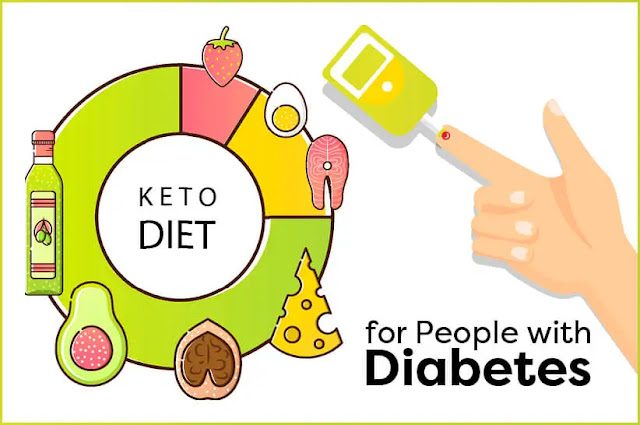Many people with diabetes are turning to the keto diet as a way to manage their condition and improve their overall health. But is this high-fat, low-carbohydrate diet a good fit for people with diabetes?
First, let's understand what the keto diet is and how it works. The keto diet, short for ketogenic diet, is a very low-carb, high-fat diet that forces the body to burn fat instead of carbohydrates for energy. When the body is in a state of ketosis, it produces ketones, which are molecules that the body can use for energy instead of glucose.
One of the main reasons people with diabetes are interested in the keto diet is because it can help them manage their blood sugar levels. When you eat a diet high in carbohydrates, your body breaks them down into glucose, which is then used for energy or stored as glycogen in the liver and muscles. However, when you eat a diet low in carbohydrates, your body has to find another source of fuel. In this case, it turns to fat, which is then broken down into ketones.
The keto diet has been shown to be effective at lowering blood sugar levels in people with type 2 diabetes, as well as improving other markers of health, such as reducing inflammation and improving cholesterol levels. However, it's important to note that the keto diet is not for everyone, and it should be used with caution in people with type 1 diabetes.
So, is the keto diet good for people with diabetes? The answer is: it depends. If you have type 2 diabetes, the keto diet can be a helpful tool in managing your condition. However, it's important to work closely with a healthcare provider to ensure you're following the diet safely and effectively.
Here are five key points to consider if you're thinking about trying the keto diet as a way to manage your diabetes:
- Work with a healthcare provider: It's important to work closely with a healthcare provider when making any major changes to your diet, especially if you have a chronic condition like diabetes. Your provider can help you create a keto diet plan that's tailored to your specific needs and monitor your health to ensure you're following the diet safely.
- Monitor your blood sugar levels: Because the keto diet can affect your blood sugar levels, it's important to closely monitor your blood sugar levels while on the diet. This will help you determine if the diet is working for you and if any adjustments need to be made.
- Don't forget about carbohydrates: While the keto diet is low in carbohydrates, it's important to include some carbohydrates in your diet. This is especially true for people with type 1 diabetes, who need a consistent source of glucose to help manage their condition.
- Get enough electrolytes: When you're on the keto diet, it's important to make sure you're getting enough electrolytes, such as sodium, potassium, and magnesium. These electrolytes can become depleted on the keto diet, which can lead to symptoms like fatigue, dizziness, and muscle cramps.
- Be mindful of your fat intake: The keto diet is high in fat, but not all fats are created equal. It's important to choose healthy fats, such as those found in avocados, nuts, and olive oil, and avoid unhealthy fats, such as trans fats and saturated fats.
In conclusion, the keto diet can be a helpful tool in managing type 2 diabetes, but it's important to work closely with a healthcare provider and monitor your health closely while on the diet.


Comments
Post a Comment